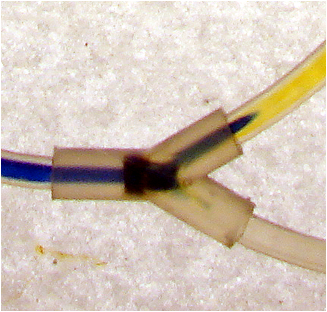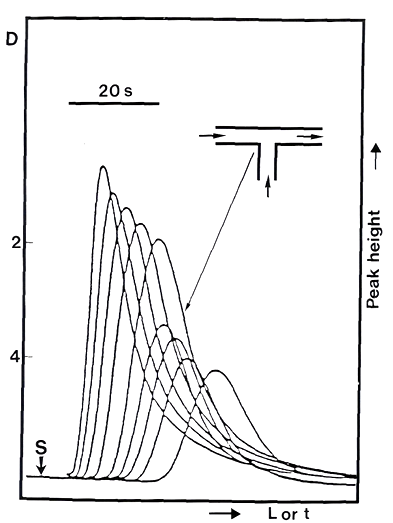0.2.9.
Flow Velocity
Changing the flow velocity is the most powerful way of
creating a local turbulence, thus breaking laminar flow
pattern and redistributing the parabolic flow profile. This
can be achieved by
- merging of two streams
- abrupt change of channel geometry
- stopping the flow
- by accelerating or reversing the flow
Until recently, flow injection, utilized only the first two
tools. In the confluence point construct (A) the stream
carrying the sample zone merges with reagent zone.
If the flow rates of sample and reagent streams are equal
and the geometry of the mixing point is correct, instant
mixing takes place (B) due to local turbulence. (See video
clips on the next page). Flow programming now also
applied to FI allows further optimization of the assay
protocol.
Sequential Injection is a single stream technique and
therefore relies on the change of flow geometry and
flow programming to promote mixing of sample and
reagent zones.

A



REAGENT
SAMPLE
B











